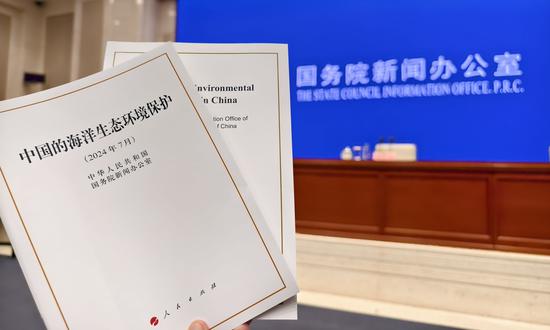China’s State Council Information Office recently released a comprehensive white paper titled “Marine Eco-Environmental Protection in China,” highlighting the nation’s robust efforts and achievements in safeguarding its marine ecosystems. This landmark document underscores China’s proactive stance towards environmental conservation, emphasizing its role as a responsible global player in marine protection.
Key Highlights from the White Paper:
Holistic Approach to Eco-Environmental Conservation:
China prioritizes the conservation of marine ecosystems to achieve harmonious coexistence between humans and the ocean.
Efforts are focused on systematic governance, coordinating development with protection, and advancing green and low-carbon maritime development.
Strategic Framework and Achievements:
The white paper outlines seven key areas, including improving the marine eco-environment, systematic governance, and science-based conservation.
Significant progress has been made, evidenced by improved ecosystem services and functions in various sea areas.
International Cooperation and Leadership:
China actively engages in international cooperation on marine eco-environmental protection, adhering to international conventions and contributing to global governance efforts.
This reflects China’s commitment to sustainable development and its role as a leader in global environmental initiatives.
Why This Matters:
Global Environmental Impact: China’s efforts have substantial implications for global marine environmental health, influencing international conservation policies and practices.
Economic and Social Benefits: Protecting marine ecosystems supports sustainable economic activities such as fishing, tourism, and transportation, crucial for coastal communities.
Future Sustainability: Understanding China’s strategies provides insights into future environmental policies and impacts on global sustainability goals.
Key Questions Addressed:
How has China improved its marine eco-environment in specific sea areas?
The white paper highlights China’s efforts resulting in enhanced ecosystem services and functions in targeted sea areas, reflecting measurable improvements in marine environmental quality.
What are the key challenges China faces in marine eco-environmental protection?
Challenges such as balancing economic development with environmental conservation, addressing pollution and habitat degradation, and managing marine resource utilization are outlined as critical areas needing continued attention.
What international conventions and agreements does China adhere to in its marine conservation efforts?
China actively participates in international conventions and agreements related to marine conservation, demonstrating its commitment to global standards and collaborative efforts in safeguarding marine environments.
How does China’s green maritime development align with global sustainability goals?
China’s strategy of green maritime development integrates sustainability principles, promoting low-carbon practices and eco-friendly technologies that contribute to global sustainability objectives and climate action initiatives.
China’s release of the white paper on marine eco-environmental protection underscores its commitment to sustainable development and global environmental stewardship. By outlining its achievements and future strategies, China sets a precedent for effective marine conservation practices and international cooperation, crucial in addressing pressing global environmental challenges.
Related posts:
China issues white paper on ‘A Global Community of Shared Future: China’s Proposals and Actions’
For more detailed insights into China’s marine eco-environmental protection efforts, read the full white paper here.

















